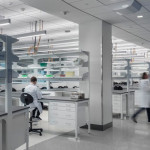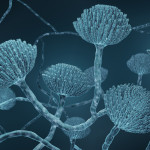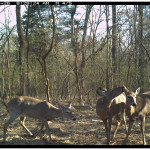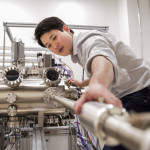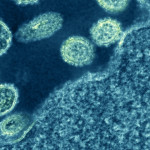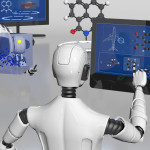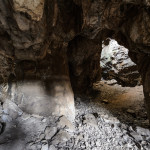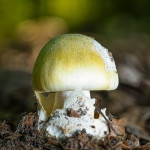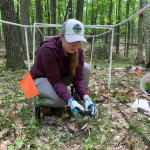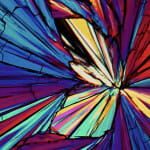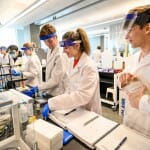Tag Research
Symposium on Laboratory Lifecycle Management report published
The Symposium on Laboratory Lifecycle Management, held in the winter of 2022, brought together researchers, facilities experts, real estate professionals and design and construction experts…
Fueled by new chemistry, algorithm mines fungi for useful molecules
Researchers have trained a new algorithm based on promising new targets and reinvigorated the search for clusters of genes likely to result in interesting biological compounds.
IceCube shows Milky Way galaxy is a neutrino desert
For the first time, the IceCube Neutrino Observatory has produced an image of the Milky Way using neutrinos — tiny, ghostlike astronomical messengers.
UW will launch materials engineering research initiative with major NSF sponsorship
UW's Materials Research Science and Engineering Center bring together teams of researchers from diverse backgrounds to better understand disordered materials, including various types of glass, as well as the emergence of order from disordered materials.
Center for Healthy Minds at UW–Madison to launch research on connection between asthma and Alzheimer’s disease
An interdisciplinary team of researchers will investigate the links between systemic inflammation and inflammation in the brain.
With transparent machine learning tool, engineers accelerate polymer discovery
The aerospace, automobile and electronics industries use these polymers, known as polyimides, for a wide variety of applications because they have excellent mechanical and thermal properties — including strength, stiffness and heat resistance.
Archaeologists uncover evidence of intentional burial, cave engravings by early human ancestor
Until now, scholars believed that the mental capacity behind complex cultural behaviors like burial and mark-making required a larger brain, like those of Neanderthals and Homo sapiens.
Clearer picture of watershed quality helps people put dollar values on improvements
Researchers found that when shown a range of tangible improvements to local and distant waterways, people surveyed were willing to pay more in taxes to support some, but not all, watershed restoration efforts.
Death cap mushroom’s invasion success may be linked to newly documented variability of toxin genes
The discovery could help researchers better understand how the toxic fungus is successfully invading California and open the door for new drug discovery pathways.
Climate-stressed trees get a boost from new microbial partnerships
On top of a better understanding of the way trees and microbes work together in a race against climate change, plant-fungi matchmaking may be a boon to plans to reforest the planet.
Flowing between art and science
Now in its third year, the Flow Project highlights not only the value of art as a tool to communicate science, but also as a way to inspire new science across University of Wisconsin campuses.
SSTAR Lab project will connect Native students with financial support
UW–Madison will collaborate on a project to give Native students a comprehensive resource of college-level financial aid programs and policies.
Runge sees bioenergy hub as model for doing ‘big research’
A first-generation college student with roots in farming and forest products, Troy Runge is looking for ways university researchers can partner with industry to help solve the hardest problems and make the world a better place.
UW–Madison biochemist named HHMI Freeman Hrabowski Scholar
UW biochemistry Provessor Judith Simcox has been named to the first cohort of the Howard Hughes Medical Institute Freeman Hrabowski Scholars Program in recognition of her outstanding early-career commitment to advancing diversity, equity and inclusion in science in research.
Enter your amazing science visuals in the 2023 Cool Science Image Contest
Members of the UW–Madison community may enter up to three images by the June 15 deadline.
Atmospheric rivers linked to melting Greenland ice sheet
New research from UW–Madison's Space Science and Engineering Center shows the melting effects of atmospheric rivers on the ice sheet, which contains enough water to raise sea levels by 7 meters, or 23 feet.
Students who see science in the real world are more likely to stick with STEM majors
Students in STEM majors whose coursework included reflection on the relevance of basic science concepts in everyday life were more likely to stick with their science, technology, engineering and math majors.
Undergraduates present research on everything from mental health to ticks to stress
"Presenting at the symposium made everything come together for me, and I felt a lot more confident in discussing what I did," said one student.

